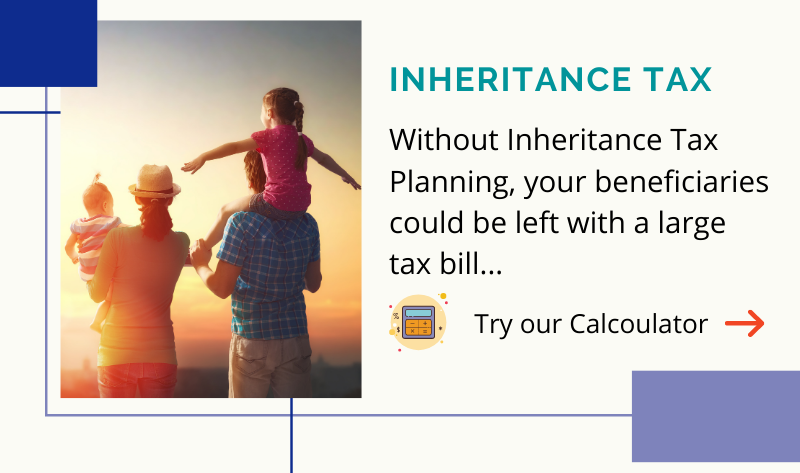
(4 Minute Read)
Could you be taxed for giving at Easter
What is it?
Everybody likes to receive an Easter Egg or more…. but there may be tax implications on receiving them.
This is because HMRC has different rules on gifts to staff, customers and charities. They also have different rules on gifts from individuals and limited companies.
This can be a £50 gift limit, the £150 per head party limit, or the rules around the Gift Aid scheme, meaning that making a tax-efficient gift can be confusing.

Gifts to Customers
Customer gifts with entertainment as the main purpose are not tax-deductible and VAT is only recoverable in limited cases. However, free samples of your products are generally accepted as advertising and promotion and the costs are tax-deductible and VAT is recoverable.
The gift must carry a conspicuous advertisement of your company in order to avoid being classified as entertainment expenses.
This is the chance to promote your brand and reward your loyal customers!
If the gifts cost less than £50:
- VAT is recoverable subject to aggregate limits over a rolling 12 month period.
- Tax-deductible as advertising if it carries your advert. It must not be not food, drink, tobacco or exchangeable vouchers.
If the gifts cost more then £50:
- VAT is either irrecoverable or if recovered, an output VAT charge must be accounted for.
- It is unlikely to be accepted as tax-deductible.
You must not make gifts totalling more than £50 to one person in a 12 month period, otherwise this will result in output tax being due.
All this means that if you invite a client to share an Easter Egg for under £50 then the input tax is not reclaimable, however, if you gift them the Egg, then the input tax is reclaimable.
Gifts to Staff
In certain circumstances you can claim the cost of gifts to your employees.
Annual staff parties are not a taxable benefit if the total cost per head is at most £150 including VAT, and includes all accommodation, transport, food and drink the business pays for. This will also be an allowable expense for Corporation Tax.
If the expense if more than £150 per head by even one penny, the entire amount counts as a taxable benefit.
The party must be open to all employees, or all employees at a specific location. It also doesn’t have to be one party, there can be a number of parties at different times of year with a maximum cost per head of £50 per party and a total of £150 per head for the year.
All employees are entitled to bring family members or a partner, who also qualifies for a £150 per head allowance.
You can claim back the VAT paid out on these parties, though this may be restricted if you are also entertaining customers.
If a company wishes to buy gifts for the employees, such as an Easter Egg, then the value of the gift cannot exceed £50, otherwise it will be a taxable benefit. This gift must not be cash, or a voucher which can be exchanged for cash, which would be a taxable benefit.

Gifts to Charity
There are different rules for donations for individuals and limited companies.
If a limited company makes a gift it is allowable if it is gifted to a charity, community amateur sports club, designated educational establishment, etc.
If the company donates equipment to a charity, i.e. desks, computer, etc., then they can claim capital allowances for your business on these expenses.
If the company has sponsored a charity or seconded employees, the associated costs of doing so should be deducted as normal business expenses.
If the company has donated money or given land, property, or shares, then these should be added as “qualifying donations” on the Corporation Tax return. Special rules apply if donating land, property or shares.
If you are an individual and donate through Gift Aid, this allows the charity to claim an extra 25% without costing you anything extra.
If you’re a higher rate tax payer you can personally claim back the difference between the tax you pay and the basic rate of tax for the total of the donation. For example:
You donate £200 to charity, and they claim gift aid to make the donation £250, or £200 plus 25%
You pay tax at 40% and can claim back 20%, which is the difference between you tax rate and the basic 20%.
£250 x 20% = £50
Therefore you could claim back tax of £50 on your £200 donation.
If your employer runs a Payroll Giving scheme, you could donate money directly to charity from your wages before tax. This means the tax you would have paid is now going to the charity of your choice and not the taxman.
When you donate land, property or shares you do not have to pay any Capital Gains Tax on that donation. If you sell it to the charity for more than they cost but less that you market value you pay Capital Gains Tax on the increase in value, not the total value of the asset.
When you choose to leave a gift in your will of more than 10% of your estate, this can reduce the inheritance tax rate and prevent your children from being left with a large tax bill.

Anything Else
It is possible to donate unwanted presents to a charity and receive tax relief on these gifts.
This is because some charities operate a system which allows the charity to act as an agent, selling goods on behalf of the owner.
This means that the items remain your property until they are sold, at which point the proceeds, less selling costs, belong to you and not the charity.
After the sale you can agree to donate all of the proceeds to the charity, meaning you may be entitled to tax relief on the donation.
You also have to make a valid gift aid declaration to cover the donations made.
Kind regards Ilyas
